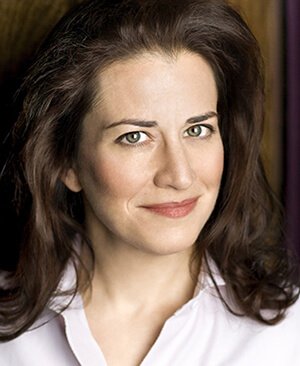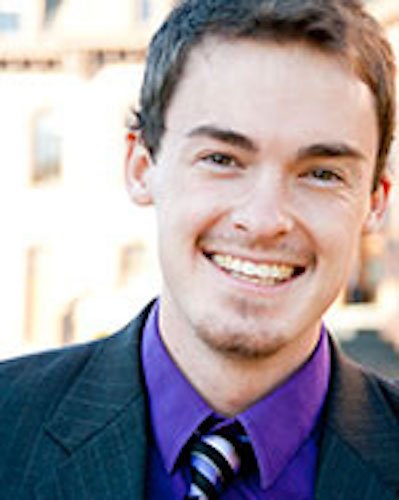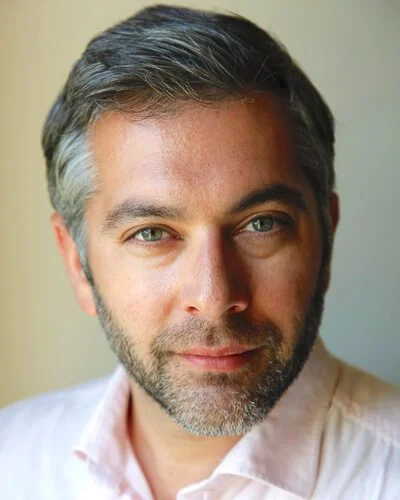Cantata Collective Program 9
April 28, 2019
Johann Sebastian Bach (1685-1750)
Nun komm, der Heiden Heiland, BWV 62
1. Chor: Nun komm, der Heiden heiland
2. Aria: Bewundert, o Menschen, dies grosse Geheimnis
3. Recitative: So geht aus gottes Herrlichkeit und Thron
4. Aria: Streite, siege, starker Held!
5. Recitative: Wir ehren diese Herrlichkeit
6. Choral: Lob sei Gott, dem Vater, g'ton
Alles nur nach Gottes Willen, BWV 72
1. Chor: Alles nur nach gottes Willen
2. Recitative and Arioso: O selger Christ, der allzeit seinen Willen
3. Aria: Mit allem, was ich hab und bin
4. Recitative: So glaube nun!
5. Aria: Mein Jesus will es tun, er will dein Kreuz versũssen
6. Chorale: Was mein gott will, das g'scheh allzeit
Christine Brandes, soprano
William Sauerland, alto
Kyle Stegall, tenor
Nikolas Nackley, bass
Marc Schachman & Michael Dupree, oboes
Kati Kyme & Lisa Weiss, violins
Anthony Martin, viola
William Skeen, cello
Kristin Zoernig, bass
TBD, organ
Guest Artists
Christine Brandes
Noted for her radiant, crystalline voice and superb musicianship, soprano Christine Brandes brings her committed artistry to a repertoire ranging from 17th century to newly composed works, performing at many of the world’s most distinguished festivals and concert series in programs spanning from recitals and chamber music to oratorio and opera.
She has sung for the following opera houses: San Francisco, Seattle, Washington National, Houston Grand, Minnesota, San Diego, New York City Opera, Philadelphia, Glimmerglass, Portland, Arizona, Opera de Nancy in principle roles ranging from Handel and Mozart, through Verdi to Bolcom and Britten.
Christine recently appeared with the Boston Symphony Chamber Players in György Kurtág’s Scenes from a Novel and with the Indianapolis Symphony Orchestra conducted by Carlo Rizzi in Debussy’s La Damoiselle élue and has sung Mahler’s Second Symphony with the Sacramento Philharmonic and Handel’s Israel in Egypt at Carnegie Hall with the New York Choral Society. She also gave a recital at King's College Chapel, Cambridge with organist, Jonathan Dimmock.
Ms. Brandes has given a series of important premieres including an Eric Moe commission entitled Of Color Braided All Desire with the Brentano String Quartet as part of the South Mountain Concert Series with further performances in New York City at the 92nd Street Y, and Jennifer Higdon’s In the Shadow of Sirius, based on poetry of former American Poet Laureate, W.S. Merwin with the Cypress String Quartet at the Herbst Theatre in San Francisco.
She has sung with the following orchestras: Cleveland, Chicago, New York Philharmonic, Philadelphia, Los Angeles, San Francisco, Houston, Atlanta, Detroit, Seattle, Minnesota, National Symphony, with such distinguished conductors as Simon Rattle, Pierre Boulez, Esa-Pekka Salonen, Frühbeck de Burgos, Robert Spano, Wolfgang Sawallisch and Alan Gilbert.
William Sauerland
William Sauerland enjoys a varied career of teaching, singing, and conducting. He is currently the Director of Choral and Vocal Activities at Chabot College in Hayward, CA, and Artistic Director of the Oakland Gay Men’s Chorus. For six years, he taught vocal music at Lick-Wilmerding High School in San Francisco. He has also served as an Associate Music Director of the Pacific Boychoir Academy.
Praised by the San Francisco Chronicle for his “limpid tone and astonishing eloquence,” as a countertenor, Dr. Sauerland’s recent solo appearances include the American Bach Soloists, Festival Opera Company, Folger Consort, Handel Opera Project, Musica Angelica Baroque Orchestra, and Oakland Symphony Orchestra. As a former member of the Grammy Award-winning vocal ensemble Chanticleer, Mr. Sauerland has sung throughout the United States, Europe, and Asia.
As an academic, Dr. Sauerland has presented at national conferences for the American Choral Directors Association (2015), Chorus America (2017), and the Society for Music Teacher Education (2017). His doctoral dissertation examined the experiences of trans and gender nonconforming singers and their teachers in the applied voice studio. He received the Doctorate of Education in Music and Music Education from Columbia University in May 2018. As a Marshall Scholar recipient, he earned a Master’s degree in Advanced Vocal Performance from the Royal College of Music in London. Originally from a small dairy farm in Ohio, he received a Bachelor of Music from Miami University.
Kyle Stegall
Kyle Stegall’s performances around the world have been met with accolade for his “blemish-free production” (Sydney Morning Herald), “lovely tone and ardent expression” (NY Times), as well as his “lively and empathetic delivery” (San Francisco Classical Voice). Mr. Stegall’s performances are characterized by an unfailing attention to style and detail, and a penetrating directness of communication.
Mr. Stegall’s successful solo debuts in Japan, Australia, Vienna, Italy, Singapore, and Canada as well as on major stages across America have been in collaboration with many of the world’s most celebrated artistic directors including Manfred Honeck, Joseph Flummerfelt, William Christie, Stephen Stubbs, and Nicholas McGegan, among others.
Heard frequently as evangelist and tenor soloist in the passions and cantatas of J.S. Bach, Mr. Stegall made his Lincoln Center debut as the evangelist in the St. John Passion under the direction of Masaaki Suzuki. In demand as a symphonic soloist, Mr. Stegall’s seasons often include the oratorios of Handel and Haydn, the great masses of Mozart and Beethoven, and works from the Bel Canto and 20th century concert canon.
A dedicated proponent of the song recital, Mr. Stegall personally curates recitals each season which reveal the vast colors and emotional range the collected repertoire has to offer. Recent recitals have included the complete sacred works for tenor and piano by Britten (presented by the Yale Center for British Art), and Lieder with fortepianist Eric Zivian at the Valley of the Moon Music Festival.
This season’s highlights include his return to the Philadelphia Chamber Music Society, singing the title role in Rameau’s Hippolyte et Aricie under the direction of Stephen Stubbs, a solo recital at the Green Music Center in Sonoma, and Bach Evangelists with a number of prominent baroque orchestras.
Nikolas Nackley
In demand on the concert and operatic stage throughout West Coast and beyond, Nikolas Nackley has been heralded by the San Francisco Chronicle as “sonorous and heroic” and praised by the Boston Globe for his his ability to “continually impress with his beautiful voice and acting.” Recent credits include the title role in Il ritorno d’Ulisse in patria, the Badger and Parson in The Cunning Little Vixen and Palante in Agrippina. He has been a featured artist with orchestras and opera companies including the Los Angeles Philharmonic, Berkeley Symphony Orchestra, Philharmonia Baroque Orchestra, the Handel and Haydn Society, Boston Lyric Opera, and West Edge Opera, working with such conductors as Sir Roger Norrington, Harry Christophers, Pablo Heras Casado, Craig Smith, Gustavo Dudamel, John Harbison and Joana Carneiro in works ranging from the sixteenth to twenty-first centuries.
Equally regarded for his work in academia and as a vocal clinician, Nikolas is on the faculty at the School of Music at San Francisco State University where he directs the chamber singers, teaches lyric diction, vocal pedagogy and opera workshop. Recently he directed Die Fledermaus at San Francisco State University, conducted the UC Berkeley Symphony Orchestra and University Chorus in Fauré’s Requiem and Vivaldi’s Gloria at Hertz Hall. He will direct Mozart’s La Finta Giardiniera at SF State in Spring 2018. Nikolas is also on the faculty of the University of California, Berkeley, where he is director of the vocal studies program as well as director of the University Chorus.
Bach Cantata Translations
BWV 62 - "Nun komm, der Heiden Heiland," II
| Cantata for the First Sunday in Advent | |
| 1. Chor Nun komm, der Heiden Heiland, Der Jungfrauen Kind erkannt, Des sich wundert alle Welt, Gott solch Geburt ihm bestellt. ("Nun komm, der Heiden Heiland," verse 1) |
1. Chorus Now come, Savior of the heathens, known as the Virgin's child, over whom the whole world marvels, that God had ordained such a birth for Him. |
| 2. Arie T Bewundert, o Menschen, dies große Geheimnis: Der höchste Beherrscher erscheinet der Welt. Hier werden die Schätze des Himmels entdecket, Hier wird uns ein göttliches Manna bestellt, O Wunder! die Keuschheit wird gar nicht beflecket. |
2. Aria T Marvel, o humanity, at this great mystery: the Supreme Ruler appears to the world. Here the treasures of heaven are uncovered, here a divine manna is presented to us, O miracle! The purity will be entirely unblemished. |
| 3. Rezitativ B So geht aus Gottes Herrlichkeit und Thron Sein eingeborner Sohn. Der Held aus Juda bricht herein, Den Weg mit Freudigkeit zu laufen Und uns Gefallne zu erkaufen. O heller Glanz, o wunderbarer Segensschein! |
3. Recitative B Thus from God's glory and throne goes forth His only-begotten Son. The hero out of Judah breaks forth to run His course with joy and to purchase us fallen ones. O brilliant radiance, o wonderful light of blessing! |
| 4. Arie B Streite, siege, starker Held! Sei vor uns im Fleische kräftig! Sei geschäftig, Das Vermögen in uns Schwachen Stark zu machen! |
4. Aria B Struggle, conquer, powerful hero! Be mighty for us in the flesh! Be effective, to strengthen the potential in us, the weak! |
| 5. Rezitativ (Duett) S A Wir ehren diese Herrlichkeit Und nahen nun zu deiner Krippen Und preisen mit erfreuten Lippen, Was du uns zubereit'; Die Dunkelheit verstört' uns nicht Und sahen dein unendlich Licht. |
5. Recitative (Duet) S A We honor this glory and approach Your manger now and praise with joyful lips what You have prepared for us; the darkness does not confuse us and we see Your eternal light. |
| 6. Choral Lob sei Gott, dem Vater, g'ton, Lob sei Gott, sein'm eingen Sohn, Lob sei Gott, dem Heilgen Geist, Immer und in Ewigkeit! ("Nun komm, der Heiden Heiland," last verse) |
6. Chorale Praise be to God the Father, praise be to God, His only Son, Praise be to God, the Holy Spirit, for ever and in eternity! |
| "Nun komm, der Heiden Heiland," Martin Luther 1524 (verse 1 and last verse - mov'ts. 1 and 6; source for the other movements.) | |
|
©Pamela
Dellal
|
|
BWV 72 - "Alles nur nach Gottes Willen"
| Cantata for the Third Sunday after Epiphany | |
| 1. Chor Alles nur nach Gottes Willen, So bei Lust als Traurigkeit, So bei gut als böser Zeit. Gottes Wille soll mich stillen Bei Gewölk und Sonnenschein. Alles nur nach Gottes Willen! Dies soll meine Losung sein. |
1. Chorus Everything according to God's will alone, in joy as in sorrow, in good times as in bad. God's will shall calm me among clouds or sunshine. Everything according to God's will alone! This shall be my salvation. |
| 2. Rezitativ und Arioso A O selger Christ, der allzeit seinen Willen In Gottes Willen senkt, es gehe wie es gehe, Bei Wohl und Wehe. Herr, so du willt, so muß sich alles fügen! Herr, so du willt, so kannst du mich vergnügen! Herr, so du willt, verschwindet meine Pein! Herr, so du willt, werd ich gesund und rein! Herr, so du willt, wird Traurigkeit zur Freude! Herr, so du willt, find ich auf Dornen Weide! Herr, so du willt, werd ich einst selig sein! Herr, so du willt, - laß mich dies Wort im Glauben fassen Und meine Seele stillen! - Herr, so du willt, so sterb ich nicht, Ob Leib und Leben mich verlassen, Wenn mir dein Geist dies Wort ins Herze spricht! |
2. Recitative and Arioso A O blessed Christian, who always sinks his will in God's will, be it as it may, in prosperity or woe. Lord, as You will, so must everything occur! Lord, as You will, You can content me! Lord, as You will, my pain will diminish! Lord as You will, I will become whole and pure! Lord, as You will, sorrow will become joy! Lord, as You will, I will find pasture among thorns! Lord, as You will, I will one day be blessed! Lord, as You will - let me seize upon this word in faith and quiet my soul! - Lord, as You will, I will not die, though body and life abandon me, if Your spirit speaks this word in my heart! |
| 3. Arie A Mit allem, was ich hab und bin, Will ich mich Jesu lassen, Kann gleich mein schwacher Geist und Sinn Des Höchsten Rat nicht fassen; Er führe mich nur immer hin Auf Dorn- und Rosenstraßen! |
3. Aria A With everything that I have and am, I entrust myself to Jesus, although my weak spirit and mind cannot grasp the plan of the Highest; He may lead me always through paths of thorns and roses! |
| 4. Rezitativ B So glaube nun! Dein Heiland saget: Ich wills tun! Er pflegt die Gnadenhand Noch willigst auszustrecken, Wenn Kreuz und Leiden dich erschrecken, Er kennet deine Not und löst dein Kreuzesband. Er stärkt, was schwach, Und will das niedre Dach Der armen Herzen nicht verschmähen, Darunter gnädig einzugehen. |
4. Recitative B Then believe now! Your Savior says: I will do it! He is accustomed to stretch out His gracious Hand still willingly, if suffering and sorrow frighten you, He knows Your need and releases your bonds of torment. He strengthens what is weak, and will not scorn the lowly roofs of poor hearts, entering into them graciously. |
| 5. Arie S Mein Jesus will es tun, er will dein Kreuz versüßen. Obgleich dein Herze liegt in viel Bekümmernissen, Soll es doch sanft und still in seinen Armen ruhn, Wenn ihn der Glaube faßt; mein Jesus will es tun! |
5. Arie S My Jesus will do it, He will sweeten Your cross. Although your heart lies in many troubles, yet it will rest gently and softly in His arms, when faith grasps this: my Jesus will do it! |
| 6. Choral Was mein Gott will, das g'scheh allzeit, Sein Will, der ist der beste, Zu helfen den'n er ist bereit, Die an ihn glauben feste. Er hilft aus Not, der fromme Gott, Und züchtiget mit Maßen. Wer Gott vertraut, fest auf ihn baut, Den will er nicht verlassen. ("Was mein Gott will, das g'scheh allzeit," verse 1) |
6. Chorale What my God wills always occurs, His will is the best, He is ready to help those who believe firmly in Him. He gives aid in need, this righteous God,and punishes with measure. Who trusts in God, relies upon Him firmly, God will never abandon. |
| Salomo Franck 1715; "Was mein Gott will, das g'scheh allzeit," verse 1: Markgraf Albrecht von Brandenburg 1547 (mov't. 6) | |
|
©Pamela Dellal
|
|
Texts and Translations courtesy of Pamela Dellal, Emmanuel Music




